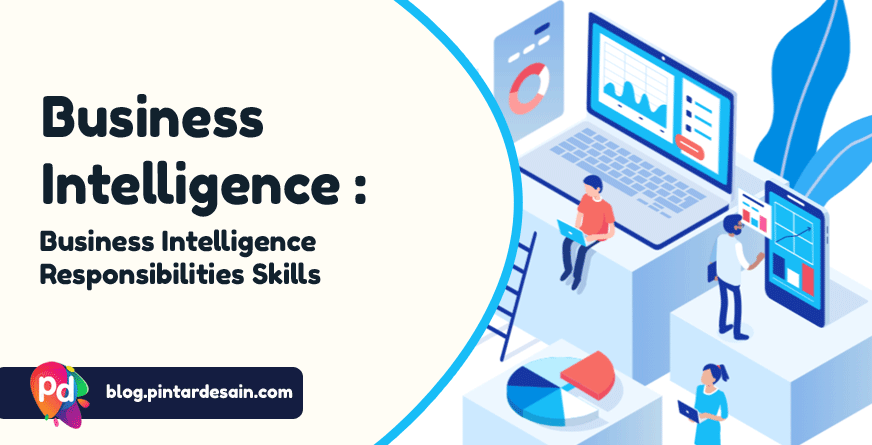In today’s data-driven world, organizations are relying more and more on data to make informed decisions. A Business Intelligence Analyst plays a crucial role in this process by analyzing data, identifying trends, and providing insights to drive business growth. In this article, we will discuss the roles and responsibilities of a Business Intelligence Analyst.

Role of a Business Intelligence Analyst:
- Data Analysis: The primary responsibility of a Business Intelligence Analyst is to analyze data. This includes collecting data from various sources, cleaning and transforming it, and identifying patterns and trends. The Analyst should be able to use different analytical tools and techniques to interpret the data and provide insights that can inform business decisions.
- Reporting: A Business Intelligence Analyst is responsible for generating reports based on the data analysis. The Analyst should be able to present the data in a clear and concise manner, using charts, graphs, and other visual aids to make it easier to understand. The reports should be tailored to the needs of different stakeholders in the organization, such as management, sales, or marketing.
- Data Visualization: A Business Intelligence Analyst should be able to create interactive dashboards that allow stakeholders to explore the data in more detail. The Analyst should be able to design the dashboard to meet the needs of different users and provide them with the insights they need to make informed decisions.
- Business Insights: A Business Intelligence Analyst should be able to provide insights that can drive business growth. This includes identifying opportunities for revenue growth, cost reduction, and improving operational efficiency. The Analyst should be able to use the data to help the organization make strategic decisions and improve its overall performance.
Responsibilities of a Business Intelligence Analyst:
- Data Management: A Business Intelligence Analyst should be responsible for managing the data used for analysis. This includes ensuring data quality, designing and maintaining data models, and creating and managing data warehouses. The Analyst should also be responsible for data governance and ensuring compliance with data protection regulations.
- Collaboration: A Business Intelligence Analyst should be able to collaborate with other departments in the organization, such as IT, finance, and marketing. The Analyst should be able to understand their needs and provide them with the data and insights they need to make informed decisions.
- Technology: A Business Intelligence Analyst should be up-to-date with the latest technologies and tools used in data analysis. The Analyst should be able to use different software and programming languages, such as SQL, Python, and R, to extract insights from the data. The Analyst should also be able to manage and maintain the organization’s BI tools and infrastructure.
- Continuous Improvement: A Business Intelligence Analyst should be committed to continuous improvement. The Analyst should be able to identify areas for improvement in the organization’s data analysis processes and tools and work to implement changes that can improve the efficiency and effectiveness of the organization’s BI efforts.
Business Intelligence Analyst: Key Skill Requirements in 2023
As we move into 2023, the demand for Business Intelligence Analysts continues to grow. In a world where data is king, organizations need experts who can analyze and interpret data to help drive business decisions. In this article, we will discuss the key skill requirements for Business Intelligence Analysts in 2023.
1. Data Analysis and Interpretation Skills
The ability to analyze and interpret data is the cornerstone of a Business Intelligence Analyst’s role. To be successful in this role, a candidate must be able to extract insights from data, identify patterns, and make predictions based on trends. The candidate should be comfortable with statistical analysis and have a deep understanding of data visualization techniques.
2. Technical Skills
Business Intelligence Analysts should have a strong technical background in data management, data warehousing, and business intelligence tools. They should be proficient in SQL, Python, R, and other programming languages. Knowledge of data visualization tools such as Tableau, Power BI, and QlikView is also essential.
3. Business Acumen
Business Intelligence Analysts should have a good understanding of the organization’s goals, objectives, and operations. They should be able to identify key performance indicators (KPIs) that are critical to business success and have the ability to translate data into actionable insights that can drive business decisions.
4. Communication and Presentation Skills
Business Intelligence Analysts should have excellent communication skills, both verbal and written. They should be able to communicate complex data analysis in a way that is easy to understand for stakeholders at all levels of the organization. The ability to create compelling visualizations and dashboards that convey insights is also important.
5. Problem-Solving Skills
Business Intelligence Analysts should be able to identify problems, analyze data to find the root cause, and propose solutions that can help the organization achieve its goals. They should have a strong analytical mindset and be able to think creatively to find innovative solutions to complex problems.
6. Continuous Learning
Business Intelligence Analysts should be committed to continuous learning and staying up-to-date with the latest trends and technologies in the field. They should be proactive in seeking out new learning opportunities, attending conferences, and participating in online communities to expand their knowledge.
Conclusion
Business Intelligence Analysts play a critical role in helping organizations make data-driven decisions. To be successful in this role, candidates should possess a combination of technical and business skills, including data analysis and interpretation, technical proficiency, business acumen, communication and presentation skills, problem-solving skills, and a commitment to continuous learning. As the demand for Business Intelligence Analysts continues to grow, these skills will become even more essential in 2023 and beyond.